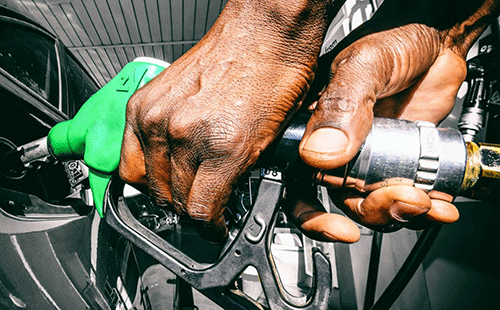A local economist has warned that Namibians can expect even more fuel price increases and associated inflationary pressure for the foreseeable future. This depressing forecast comes as the mines and energy ministry on Friday confirmed yet another escalation in already unaffordable fuel prices, with petrol prices to go up by 188 cents per litre and diesel by 134 cents per litre this Wednesday, 6 July.
The new fuel prices in Walvis Bay will thus be a new national record high of N$22.28 per litre for petrol and N$22.77 per litre for diesel. Explaining that this latest increase is well within expectations of the upward trajectory, managing director of Twilight Capital Consulting Mally Likukela said the fuel price increase is primarily driven by global inflationary pressures.
“This is unfortunately expected to persist for a long period, as long as the global macroeconomic fundamentals driving price pressures remains. The main implications are that central banks will automatically respond by adjusting policy rates to curb inflation. The consequence of such policy action is an increase in the cost of capital and a depressed demand in the local economy. This will undoubtedly constraint growth and restrain recovery.”
New Era columnist Josef Kefas Sheehama warns that Namibia is heading for a recession, saying the Bank of Namibia is poised to hike the interest rate by 0.50% basis points on 17 August 2022. Rocketing energy and food costs have precipitated the worst cost of living crisis.
He said Namibia is a small country with an over-reliance on diamonds, uranium and fish. Relatively large fiscal deficits, rapidly rising government external debt levels and slipping credit ratings are visible.
“The increase in fuel prices has been noted as a concern for the global and local economy. These increases will certainly impact on every single Namibian, given the reliance the country has on fuels for transportation, manufacturing and in the agricultural sector.
“Therefore, if oil prices are rising, we face rising living costs, and our disposable income will not go as far, leading to cutbacks on some purchases, because salaries cannot keep up with inflation. With rising oil prices, we get both higher prices and less demand, a situation which can lead to stagflation.
According to the mines and energy ministry, the Organisation of Petroleum Exporting Countries (OPEC) has been increasing crude oil supply rather slowly, while the international oil price-driven inflation continued to reach record highs. The ministry added that since the situation in the oil market seems not to be improving, government is currently vigorously exploring with alternative fuel procurement strategies to stabilise Namibian fuel prices.
“It is currently being predicted that the high level of inflation might soon start to erode global demand for oil, and pull down the ever-increasing prices in the process. Due to a lot of mounting public pressure in those nations, however, the United States and the European Union are currently deliberating on allowing more Russian oil to reach the international oil markets, despite the sanctions. This is due to fears that the continuation of the sanctions on oil will only drive oil prices further up,” a ministerial statement read.
The statement from the executive director’s office added that it is further expected that the high prices recorded in recent weeks and months probably signify the peak of this global crisis in the oil market, and that more positive developments are to be expected soon.
“Deep fears of a global economic recession are also looming in the background,” the ministry noted.
Ministerial calculations indicate the average price for Unleaded Petrol 95 from 1 to 24 June 2022 was US$159.795 per barrel (compared to US$146.104 per barrel at the end of May 2022), representing an increase of about US$13 over the review period.
Additionally, the average price for diesel 50ppm over the same period was US$166.224 per barrel (compared to US$151 739 per barrel at the end of May 2022), which was an increase of about US$I5 per barrel. During the same period, the Namibia Dollar recorded a minor appreciation at N$15.7606 per US Dollar. This slight currency appreciation had a minimal effect on the import parity price calculations.
“Moreover, it must be noted that the National Energy Fund will cover the entirety of the under-recoveries recorded between 1-30 June 2022 on behalf of fuel consumers through the fuel equalisation levy. This is approximately N$142 million,” the ministry stated.


